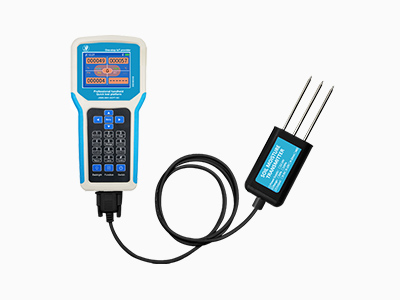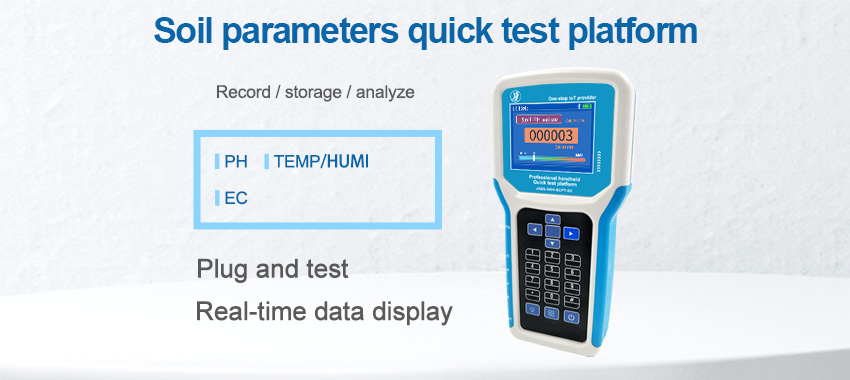The pH level of soil is a critical factor that affects the growth and health of plants, as well as the overall quality of the soil. In this article, we will explore the significance of soil pH sensors, their working principles, applications, and the impact they have on various industries.

Understanding Soil pH
pH is a measure of the acidity or alkalinity of a substance, and it is measured on a scale of 0 to 14. A pH value of 7 is considered neutral, while values below 7 indicate acidity and values above 7 indicate alkalinity.
In the context of soil, pH plays a crucial role in determining the availability of essential nutrients to plants. Most plants prefer a slightly acidic to neutral pH range, typically between 6 and 7.5. When the soil pH deviates from this range, it can lead to nutrient deficiencies or toxicities, which in turn can impact plant growth and productivity.
Importance of Soil pH Sensors
By understanding the pH of their soil, farmers can adjust their farming practices, such as selecting suitable crops, applying the right fertilizers, and making informed decisions about soil amendments. This can lead to improved crop yields, better quality produce, and more sustainable agricultural practices.
Working Principles of Soil pH Sensors
on the principle of measuring the concentration of hydrogen ions (H+) in the soil solution. Most soil pH sensors use a glass electrode combined with a reference electrode to measure the electrical potential difference between the two electrodes,
which is then converted into a pH value
The sensor is inserted into the soil, and the pH measurement is typically displayed on a digital screen or transmitted to a data logging system for further analysis.
Applications of Soil pH Sensors
find widespread applications in agriculture, horticulture, environmental monitoring, and research. In agriculture, soil pH sensors are used to assess the pH of fields and make decisions about lime application to adjust soil pH. In horticulture, soil pH sensors help gardeners and landscapers determine the suitability of soil for different plants and make informed choices about soil amendments. In environmental monitoring,
soil pH sensors are used to assess
the impact of pollutants and acid rain on soil pH, helping to identify areas that require remediation. In research, soil pH sensors are used to study the effects of soil pH on plant growth, microbial activity, and nutrient availability.
Impact on Agriculture and Environmental Science
The use of soil pH sensors has had a significant impact on agriculture and environmental science. By enabling precise and timely measurements of soil pH, these sensors have helped farmers optimize their crop production, minimize the use of chemical inputs, and reduce environmental impact. In addition,
soil pH sensors have contributed
to a better understanding of soil-plant interactions and the dynamics of soil pH in response to various environmental factors. This knowledge has informed the development of sustainable soil management practices and has contributed to the conservation of natural resources.
Challenges and Future Developments
While soil pH sensors have proven to be valuable tools, there are challenges associated with their use. One challenge is ensuring the accuracy and reliability of pH measurements, especially in diverse soil types and conditions.
Another challenge is the need for cost-effective and user-friendly
soil pH sensors that can be widely adopted by farmers and researchers. In the future, advancements in sensor technology, such as the development of wireless and portable soil pH sensors, are expected to address these challenges and further enhance the accessibility and utility of soil pH measurements.
In conclusion
play a crucial role in agriculture and environmental science by providing essential information about soil acidity and alkalinity. By enabling precise and timely measurements of soil pH, these sensors have contributed to improved crop production,
sustainable soil management practices
and a better understanding of soil-plant interactions. As technology continues to advance, soil pH sensors are expected to become even more accessible and effective, further contributing to the advancement of agriculture and environmental sustainability.

In summary
are valuable tools that play a crucial role in agriculture and environmental science by providing essential information about soil acidity and alkalinity.
By enabling precise and timely measurements
have contributed to improved crop production, sustainable soil management practices, and a better understanding of soil-plant interactions. As technology continues to advance, soil pH sensors are expected to become even more accessible and effective, further contributing to the advancement of agriculture and environmental sustainability.